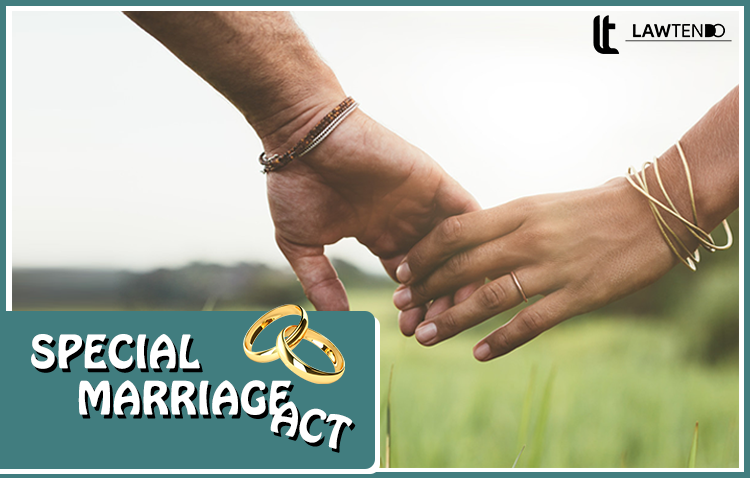Complete guide on the special marriage act 1954

Date : 03 Oct, 2019
Post By Sankul Nagpal
Marriage is one of the most sacred and omnipresent social institutions in India. It serves as a crucial milestone in an individual’s life that legitimizes offspring and provides an individual with emotional as well as social support.
Marriages in India are governed by various laws and custom depending upon the religion and/or sect of the parties. One of the most widely spread laws that govern marriages in India is the Special Marriage Act, 1954
What is the Special Marriage Act 1954?
The Special Marriage Act was enacted to establish a special form of marriage for all the people of India and all Indian nationals in foreign countries, irrespective of the religion or faith. Marriages solemnized under the Special Marriage Act are not governed by personal laws.
Applicability of the Act
This Act applies to all marriages among Hindus, Muslims, Christians, Sikhs, Jains and Buddhists. This Act further applies to every state of India, except the state of Jammu & Kashmir. What makes the Act ‘Special’ is the fact that this act extends to all the Indian nationals living abroad.
Conditions for a valid marriage under the Special Marriage Act
Unlike marriages under the Hindu Marriage Act, the basic and only requirement for a valid marriage under this Act is the consent of both the parties. However, prior to the marriage, the parties need to compulsorily file a notice before the Marriage Registrar expressing their intention to get married. The marriage is then solemnized after the expiry of 30 days from the date on which such notice had been published. For a valid marriage, under the SMA it is also required that the parties give their consent in front of the Marriage officer and three witnesses.
Other prerequisites that are needed to be followed to be eligible for a marriage under this Act are:
● The Groom must be at least 21 years of age and the bride must be at least 18 years of age at the time of marriage.
● Both parties must not have a spouse living at the time of marriage.
● The parties should be mentally fit in order to be able to decide for themselves i.e. they must be of sound mind at the time of marriage.
● They should not be related to each other under prohibited relationships
The Change Brought Out by the Special Marriage Act
The Special Marriage Act, since its very inception, has played a crucial role in redefining the institute of marriages in India. With the passage of the SMA, inter-caste and inter-religious marriages found legal legitimacy and couples got the freedom to choose their life partners. The Special Marriage Act serves as an umbrella for all truly “special” marriages that reflect the diversity of Modern India.
LawTendo has around 15000+ lawyers across India in our platform. LawTendo strives to facilitate cost-efficient and quality legal service to our clients. You can contact us at +91-9671633666 or [email protected].





